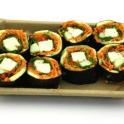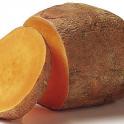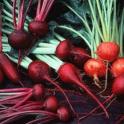If you’re looking for an alternate source of protein apart from your usual chicken breast, steak, fish, or egg whites, one that you might consider from time to time is lamb. Lamb meat is a food that many people do enjoy but before you go adding it to your diet in large quantities, it’s important that you pay attention to the nutrition that it contains.
Let’s take a closer look at what you need to know about lamb meat.
Major Nutrients Found In Lamb
As you can see from the table, lamb is definitely a protein source that is higher in fat, and also higher in saturated fat as well. For this reason, it isn’t something that you’ll want to include in your diet very regularly, but if selected properly and you do make sure to monitor your portion sizes, you can add it in when the craving strikes.
Lamb is also very low in sodium content and is an excellent source of vitamin A, vitamin B6, Pantothenic Acid, phosphorus, and manganese. The drawback is that it’s also higher in cholesterol so if that’s something you’re really trying to watch in your diet, you need to be aware of.
Storing/Selecting
When selecting your lamb, always try and select meat that has flesh that’s firm and has a nice pink color to it. This is a good indication of freshness so if you find some that is off-colored, you will want to avoid it.
In addition to this, look for lamb that has white fat around it rather than yellow as that too can indicate whether or not the meat has gone bad. Place the meat immediately in the fridge when you return home or if you plan not to use it within a couple of days freeze for later use.
Eat It With:
Lamb can be eaten in a variety of different ways however some of the most common methods include making lamb burgers, serving it as part of a stew, having it with shish kebobs, or serving it grilled with some fresh, seasonal vegetables.
Burn Off Calories In Lamb
To burn off the number of calories in a serving of lamb you would have to do:
- 28 minutes of cross country skiing
- 33 minutes of basketball
- 31 minutes of soccer























